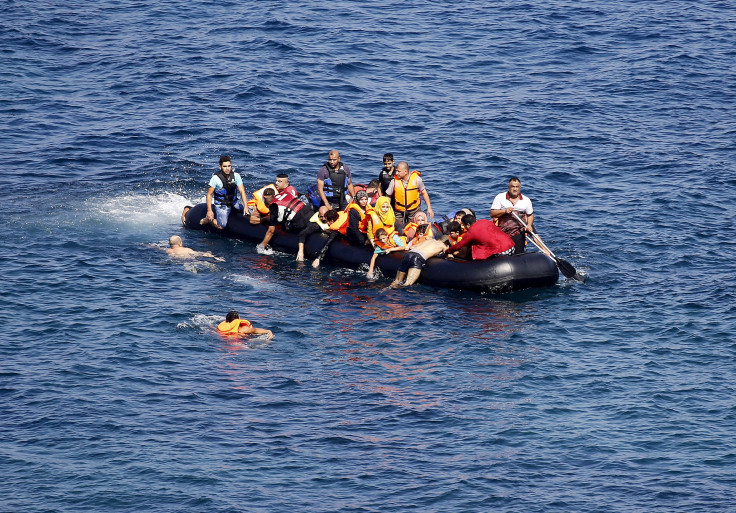Refugee Crisis Update: 13 Die Off Turkey; Hungary Reopens Border

Turkey’s coast guard reported Sunday that 13 people died in the country’s waters when a commercial ferry collided with a boat carrying refugees. An official said eight people were rescued and that a search-and-rescue mission was under way, according to the Associated Press.
The deaths came as members of the European Union continued to struggle to find a unified way to deal with the refugee crisis. Also Sunday, Hungary said it reopened to vehicles the border crossing between its village of Roszke and the Serbian village of Horgos. The crossing was the site of clashes between police and refugees Wednesday. Hungarian officials said they would check all vehicles attempting the border crossing.
Hungarian and Serbian officials met to discuss the situation after the clashes last week. Hungary’s Interior Minister Sandor Pinter said his country was willing to work with its neighbors. “We determined how to handle this extraordinary situation together and tried to find a joint solution,” AP quoted Pinter as saying.
Border closures had affected trade in the region.
Hungary has built a razor-wire fence along its border with Serbia to prevent people from illegally crossing the frontier, and its government has said it plans to construct another fence along its border with Croatia. Meanwhile, refugees crossing into Hungary from Croatia were being put on buses and trains headed toward Austria Sunday, AP reported.
According to International Organization for Migration (IOM) data as of Sept. 18, 473,887 refugees have arrived in Europe by sea routes in 2015, while more than 2,800 people have died on those routes this year. Refugees have fled war-torn countries or repressive nations such as Syria, Iraq, Eritrea and Afghanistan. The IOM reported that Syrians constituted almost 40 percent of the refugees entering Europe.
Experts are worried that refugees may begin attempting even more dangerous crossings to reach Europe, such as by traversing the Black Sea. “People will find those other routes, and even if they don’t, they will park themselves in these countries in protest,” Sanjayan Srikanthan, emergency field director of the International Rescue Committee, told International Business Times.
EU officials are scheduled to meet in Brussels Wednesday to discuss possible solutions to the massive migration problem that has pitted Western European countries against Central European nations.
© Copyright IBTimes 2024. All rights reserved.






















